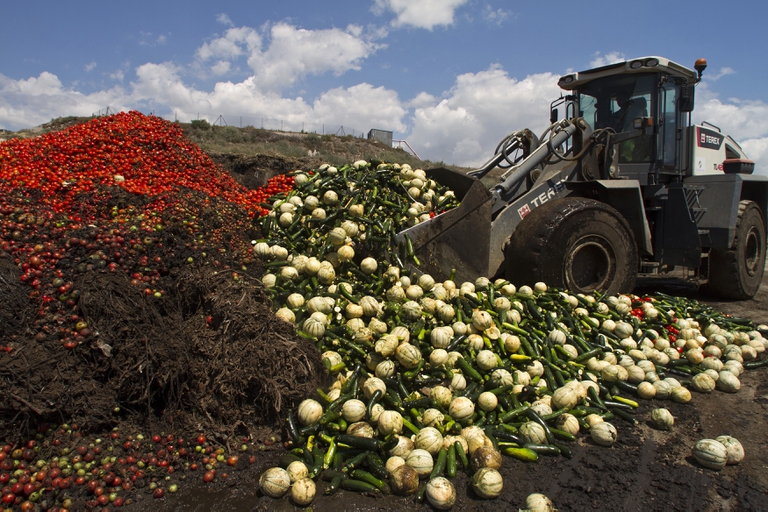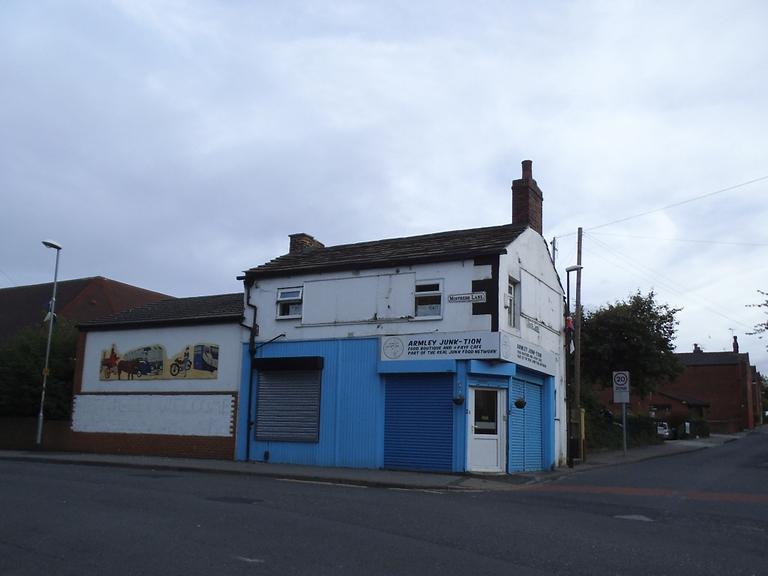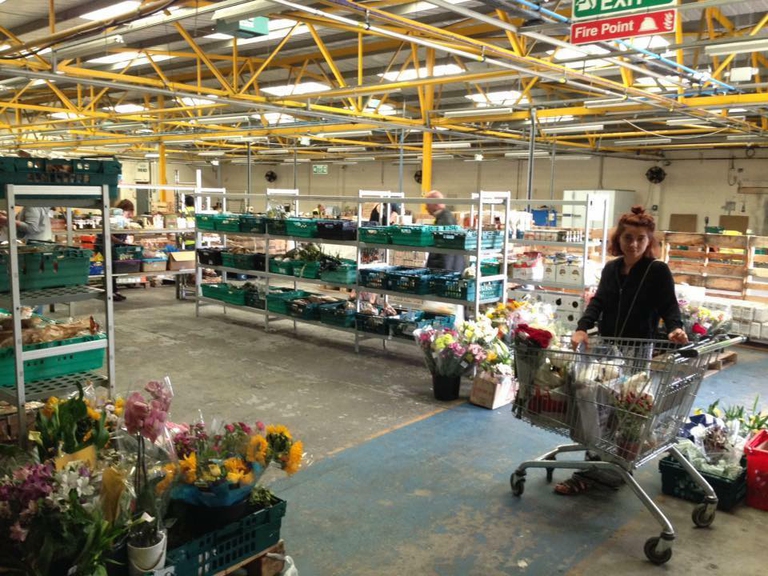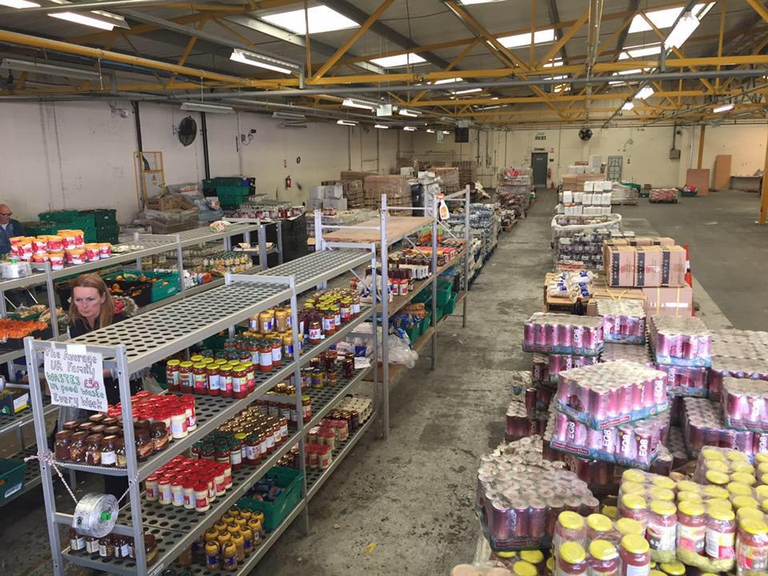
Bandiera della Juventus, buon esempio per i tifosi. Claudio Marchisio fuori dal campo è una persona semplice, ma che non si tira indietro quando c’è da prendere posizione sulle sfide più importanti del nostro tempo: come i cambiamenti climatici.
In The Real Junk Food Project cafés food is saved from being wasted. These products, perfectly edible and usually close to their expiry date, are cooked into tasty and healthy meals and offered to people on a pay as you feel basis, letting the consumer decide what is the appropriate value for the food they
In The Real Junk Food Project cafés food is saved from being wasted. These products, perfectly edible and usually close to their expiry date, are cooked into tasty and healthy meals and offered to people on a pay as you feel basis, letting the consumer decide what is the appropriate value for the food they have. The first café opened in the UK city of Leeds in 2013. Now the network extends to 80 cafés around the country and 120 worldwide, including in France, Germany and Australia. And it keeps growing.
Each year a third of the food produced worldwide is wasted, approximately 1.3 billion tonnes that cost us over 1 trillion dollars. In the European Union alone 88 million tonnes end up in bins or spoiled with estimated costs of over 150 billion dollars (143 billion euros). On the other hand, 1 billion people globally are undernourished. In fact, “the food currently wasted in Europe could feed 200 million people,” according to the UN’s Food and Agriculture Organisation (FAO).
The Real Junk Food Project is a charitable organisation founded by Adam Smith and Johanna Hewitt when they came back to the UK after working in Australia and opened the first café in the district of Armley in the northern city of Leeds in December 2013. While working in the food industry in Australia they witnessed the scale of waste. Once back home, their first efforts were to divert food from bins and make meals to feed people.
They chose to start from their local community, especially its most underprivileged segments, to then go global. Now a board of trustees that Smith sits on runs the organisation in pursuit of its aim to feed people and educate them on the topic of food waste. “We believe that this has to stop, and it needs to happen in our lifetime, to ensure the next generation don’t suffer from our ignorance,” according to the movement’s website.
The first café, the Armley Junk-ion, is still monitored by Smith. It has a different menu each day, as well as a best-before bistrot and food boutique. The bistrot aims to deliver a dining experience following a pay as you feel philosophy while the food boutique is a pay as you feel shop for grocery and food. The café also offers catering services for events following this concept, which also allows the project to reach an increasing number of people. In the first Armley café alone, 20,971 people have been fed and 29,777 meals have been cooked since 2013.
The Sharehouse is the evolution of the food boutique into a supermarket in Leeds where customers can buy fresh as well as refrigerated food intercepted from supermarkets, restaurants and other local businesses, most of which would otherwise end up in a landfill. Anyone can make purchases on a pay as you feel basis, either by giving cash or offering their skills or time. Up to today it has intercepted 440 tonnes of surplus food in one quarter alone (from the 17th of September to the 16th of December 2016) – surpassing the prediction for the whole of 2016, which was of 400 tonnes of food saved by the entire global network.
The network is particularly interested in reaching younger generations. Hence, the innovative Fuel for School project was launched in partnership with Richmond Hill Primary School in Leeds. The programme is designed to remove hunger as a barrier to learning by providing 600 pupils with breakfast meals whilst highlighting the importance of nutrition, and benefits of learning about food waste and recycling.
The initiative’s mascot is an orange fox named FRED, which stands for Feed Recycle Educate Dine. The results are encouraging as 38 schools in Leeds are now participating in the programme and the number keeps growing. Thanks to it a new shop run by pupils has been opened in the Leeds city centre.
A partnership with Leeds City Council and St John’s Shopping Centre led to the launch of a Tasted Sandwich Shop in the centre of town from the 5th to the 11th of December, run by pupils from three Leeds primary schools. The children used wasted food to make sandwiches, expanded their vocational and business experience and raised awareness about food waste. The shop was also run on a pay as you feel basis and included a food boutique.
The Real Junk Food Project is an innovative, holistic and inspiring idea of how a real, pressing issue can be tackled step by step, starting from the local then going global. Efforts such as this one show us that with collective effort, determination, innovative ideas and education any problem can be faced and the wellbeing of people enhanced.
Siamo anche su WhatsApp. Segui il canale ufficiale LifeGate per restare aggiornata, aggiornato sulle ultime notizie e sulle nostre attività.
![]()
Quest'opera è distribuita con Licenza Creative Commons Attribuzione - Non commerciale - Non opere derivate 4.0 Internazionale.
Bandiera della Juventus, buon esempio per i tifosi. Claudio Marchisio fuori dal campo è una persona semplice, ma che non si tira indietro quando c’è da prendere posizione sulle sfide più importanti del nostro tempo: come i cambiamenti climatici.
275,000 photovoltaic modules connected by 990 kilometres of cables. The logistics behind coordinating such a project are tremendous. The Mulilo Sonnedix Prieska PV project will, once completed, cover an area approximately equal to 125 football or rugby fields. The plant, which is being constructed by US company Sonnedix in the Northern Free State area of Prieska, will have a capacity
At Pappadavada, a famous food joint in Kochi, in the southwest Indian state of Kerala, everybody can bring food for those in need. Its manager, 28-year old Minu Pauline, kicked the initiative off with food provided by the restaurant. She installed a free-standing fridge outside its premises, packing it with fifty meals a day destined for homeless people, available
Factory farming conditions and antibiotic-resistant pathogens emerging as a result of them pose an existential threat to humans in the form of zoonotic diseases. Why it’s time to produce and consume food more thoughtfully.
The world of cinema recognises the link between food choices and the climate crisis by offering vegan menus for awards season events, including at the most important of them all: the Oscars.
Let’s look at the reasons behind the growth of veganism in India, as a small yet vocal section of the population turns towards this diet and lifestyle in the largest milk producing country in the world.
by Jeffrey Y. Campbell, Manager of the Forest and Farm Facility at FAO In the Ecuadorian Amazon, Kichwa farmers grow dozens of products on tiny parcels of land. Their lands hum with biodiversity, yielding nutritious foods that have sustained families for generations. Wandering among fruit and nut trees and crops, these indigenous agroforesters fill their baskets
By asking every person in the guest list to donate one euro, Berlin clubs have raised 50,000 euros for the refugees.
Behind the negotiations carried out at Le Bourget for 13 days by 19,385 delegates from 195 countries in 2,500 meetings, there are some people that played a crucial role. Many committed to finding bold agreements, whilst others slowed down the works, putting at risk the results of the climate conference. “I wish all those who contributed










